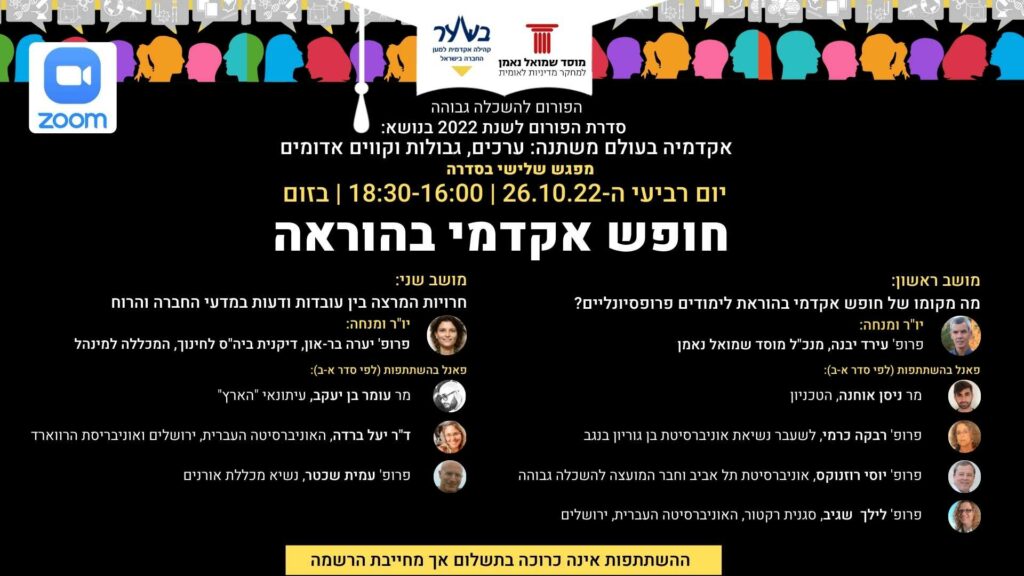Higher Education Forum: Session No.56: Academic Freedom in teaching
Session 3 out of 4 26.10.22, 18:30-16:00, zoom
Chairman and Host of the Meeting
First Session: Prof. Irad Yavneh
Second Session: Prof. Yaarah Bar-on
Greetings:
Dr. Vered Ariel-Nahai, CEO BaShaar
Prof. Hagit Messer-Yaron, Chairman BaShaar
First Session:
What is the place of academic freedom in teaching professional studies?
There is a difference between studies aimed at professional / vocational training and those aimed at intellectual enrichment and purely academic literacy. In the background of professional studies is the image of the graduate as a professional and an expert in the field of occupation. When professional studies are examined through the lens of academic freedom in teaching, questions must be addressed, including who is authorized to determine what skills must be demonstrated in order to obtain permission to engage in the profession? What is the required bar and who authorizes it? At the same time, what are the limits of the lecturer’s freedom to deviate from the formal requirements of the courses he teaches?
Prof. Irad Yavneh, BaShaar’s Academic Forum & CEO of Samuel Neaman Institute for National Policy Research
Questions from the audience
Second Session:
Liberty of the lecturer between facts and opinions in the social sciences and humanities
In the social sciences and humanities, every theoretical discussion deals with questions of human society and therefore raises moral and political issues that are necessarily unconscionable. Academic freedom is especially required in these areas, and at the same time, the freedom of the speaker always faces a possible harm to the souls of others. The subjects of study require attention to the controversial aspects. Any statement, concept, definition can be a trigger for possible harm. This generates conflicts that flare up frequently or, alternatively, self-censors, out of a desire to please everyone. What is the cost of this process? Is it possible to avoid dealing with controversial issues? The session will discuss these issues.
Prof. Yaarah Bar-on, Chairman and moderator of the session; Dean of the School of Education, College of Management, former President of Oranim College
Questions from the audience
————————————————————————————

